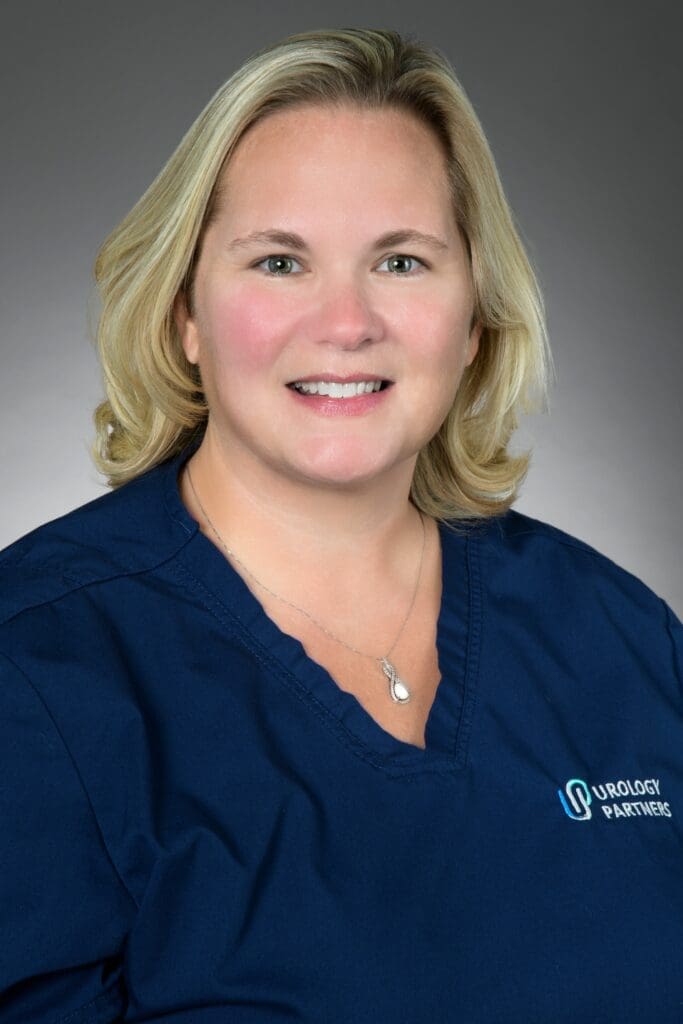It’s a testament to our ability to soldier on in the face of adversity that keeps many of us from tackling pesky health issues when they first come up. Or maybe its fear. Or embarrassment. Or just genuinely not knowing what to do when something like uncontrollable urine leaks start happening.

Whatever the reason, some of us just suck it up and live with it a lot longer than we should.
“There are women in this world who think leaking all over themselves is just part of life—it’s normal and you just have to live with it,” says Nina Turcotte, EMT.
Turcotte and Meredith Norris, BSN, RN, CURN, are patient navigators with Urology Partners of North Texas (UPNT) Incontinence Center. Both women have more than two decades in healthcare with nearly as many dedicated to urology—a field they both admit they are passionate about.
Now, they’ve honed in on an aspect of the field where they are happy to really make a difference—helping some of the nearly 33 million people on the planet who struggle with overactive bladder (OAB).
Overcoming OAB—Together
With OAB, the muscles of the bladder spasm or contract involuntarily even when there isn’t much urine in the bladder. This contraction creates a strong and urgent need to go. The urge happens frequently and is often difficult or impossible to control. OAB is more common in people in their 40s and 50s, but it isn’t always related to aging. Neurological disorders can also trigger its onset. Nearly 30 percent of men and 40 percent of women in the United States live with OAB symptoms.
Fortunately, there are lots of great treatment options, including minimally invasive ones. In some cases, lifestyle changes and medications can eliminate leaks. In others, Botox injections can calm nerves and muscles around the bladder to reduce or eliminate the uncontrollable urge to go.
For more advanced cases, the InterStim procedure (which uses the same pacemaker technology to treats heart patients) or posterior tibial nerve therapy (a series of mild electrical stimulation treatments) can put an end to OAB leaks.
UPNT’s OAB patient navigators guide patients through every step of their treatment.
VIP Concierge Service for Your Bladder

To help individuals enjoy life without embarrassing leaks, UPNT’s incontinence specialists pair every patient with a caring, knowledgeable patient navigator. In fact, patients are given their navigator’s direct phone number so they don’t have to go through a call center. This direct connection helps nurture a bond between patients and their navigator.
“We are definitely their advocates, champions and teachers,” Norris explains.
“We help patient understand their disease, its causes and treatment options,” Turcotte adds.
Turcotte and Norris work one-on-one by phone with OAB patients during regular check-in sessions. “We reach out to a patient for the first time about three weeks into their treatment plan,” Norris explains. “This gives their treatment time to start working.”
Patients are free to call their navigator sooner if they have questions or concerns. In fact, they are encouraged to call whenever they have a question or issue—as often as they like. There is absolutely no charge for the service.
From Embarrassment to Empowerment
With UPNT physicians, physician assistants, patient navigators and patients teaming together, OAB suffers enjoy a 360-degree approach to staying dry.

“The doctor is the lead who maps out a treatment plan—either pelvic floor therapy, medication or other therapy or procedure. As patient navigators, we are an extension of that care,” Norris notes. “We have conversations with the patient they often don’t have with their physician. We talk about behavior modifications techniques and review their daily fluid intake. We give them a list of foods and drinks that can irritate the bladder. Just as important, if those treatment approaches aren’t working, they can talk to us about the next steps.”
“And they are receptive to that,” Turcotte adds. “I’ve had patients call back after a few months into their treatment if they are experiencing side effects or feel the treatment isn’t helping their problem as well as they’d hoped. We’re here to listen and talk in depth with them to help figure out the issue so we can get them the right kind of help.”
But along with expert advice, both women know another aspect of their mission makes a big difference with their patients.
“They know we really care,” says Turcotte. “My purpose is to be their advocate. To be their voice if they don’t feel like things are working as they should, or if they are uncomfortable with the path we’re going down.”

Navigating Life Without Leaks
OAB sufferer Sara struggled with leaks for 15 years before she went to UPNT’s Incontinence Center. She really appreciated being paired with her OAB patient navigator. “It is so nice to be able to talk with someone who has access to all of your information and can either advise you or say let me check with the doctor and get back with you. I programmed her number right into my phone.”
In fact, when Sara noticed that the OAB medication she was prescribed was raising her blood pressure, she called her navigator right away. “She told me there was a new medicine that had just come out, Gemtesa, that didn’t have that side effect.”
After taking the new medication for just a few days, Sara noticed a dramatic improvement in her OAB, and her blood pressure was fine. “Her recommendation was a game-changer,” Sara admits.
For Turcotte and Norris, every patient’s success is a reminder of why they do what they do—help people enjoy life without an embarrassing and limiting bladder condition.
“A lot of them will say, if it wasn’t for you, I wouldn’t understand my condition. Or, now that you’ve explained I have other options, I’ll give treatment a second chance,” Norris says. “Anytime a patient comes back and says thank you, it is extremely rewarding.”
Turcotte agrees. “To hear them say they’re dry and their life has changed, those are the best words we can hear from a patient.”

Are You Struggling with Overactive Bladder?
The compassionate incontinence specialists at Urology Partners will help you take charge of your bladder. We offer effective treatment options for every type of incontinence. Call 866-367-8768 or schedule an online appointment.


